A database management system (DBMS) commonly refers to a tool that is responsible for the creation and management of data. It also allows users to retrieve or update data at a moment’s notice. A company, however, should choose database management software as per its specific needs and requirements.
With the help of database management software – a company can instantly update, create, define, or send queries to an administrative database. Furthermore, this facilitation can be transformative for companies that want to capitalise on various data formats and their retrieval methods.
This article outlines DBMS of exceptional quality to help ecommerce marketers find the one that suits your technical and business objectives.
What Is Database Management Software?
Technically, a Database Management System is a database management tool, a uniform technology that helps businesses optimise, manage, store, and retrieve data as required from your main databases. The user interface of the DBMS is a systematic approach that can handle large chunks of data workloads.
The foundational structure of a DBMS is based on three vital elements; data itself, database schema, and database engine. The schema is responsible for a logical structure while the engine ensures the data can be accessed, locked, and modified by users.
Interestingly, you can also store your database information via apps. Analogically, assume a DBMS as a bridge between your main database and application programs. Additionally, database management software grants you the scalability and modification options to recover, comply, or simply monitor business operations.
The Usage of a Database Management System in the Industry
The usefulness of the DBMS is its centralised process that allows multiple users to access data despite different geographical locations. Furthermore, the DBMS can limit the data usage and functionality of each user. There are different types of database software.
The DBMS grants end-users the freedom and convenience to store logical or physical data. Consequently, users don’t have to be concerned about the structural changes or the physical location of data. Application Programming Interface (API), for instance, doesn’t bother the developer to make manual changes. Instead, it automatically makes modifications to the database.
The Art of Choosing the Best Database Management Software
Whether you run a small or an established business, it would be wise to look for a DBMS with multiple database options. From sophistication to enhanced scalability, your choice should complement the nature of your business product or service.
Here are some of the best DBMS that can help your business with productivity and the realisation of its true potential:
Microsoft SQL Server
Microsoft’s SQL Server is one of the most effective DBMS in existence. The free tag of the tool certainly attracts a large user base. Its custom-built graphical integration of the best database designs has saved users valuable time for years. Similarly, the diagrams that you can make with the help of this tool can be easily added to a new or existing project library.
Object Explorer feature helps end-users to view the creation of the tables. Template Explorer, on the other hand, is a bundle of script objects that can be used to identify numerous names in the database system. In addition, the SQL Server creates specific containers that allow users to combine views and scripts of a linked object or group.
Postgre SQL
The open-source DBMS solution gets attention because of the invigorating indexing and configuration options. Postgre SQL is ideal if your daily business activities require you to import or export data.
As of now, Postgre SQL supports Python and JSON programming languages. Although it is a relational database solution, users are free to create NoSQL databases. Besides, the open-source community has created a wide array of plug-ins to boost the functionality of the software.
My SQL
My SQL is a high-speed data processing and data productivity tool with comprehensive features. The tool is designed to increase the security and scalability of your databases. A reliably cost-effective tool offers technical support and counteracts potential risks. Furthermore, high-volume business sites can deploy business-oriented complex MySQL applications.
Amazon RDS
Amazon RDS (Relational Database Service) is one of the best DBMS tools. It has a dedicated secured connection, and it automatically backs up your data through an inbuilt feature. Furthermore, it can resize your entire database activities.
Oracle RDBMS
The latest version of the Oracle RDBMS tool encompasses larger databases, takes less space, is more secure, and quickly processes data. It is, in fact, one of the most effective object-relational DBMS tools.
You can run Oracle RDBMS on a PC or a high-powered supercomputer. The active designs, for instance, trigger a dedicated referential system within the software
Razor SQL
RazorSQL is one of the most popularized database management and query tools. It allows users to check schemas, tables, unidentified keys, structure indexes, and columns. You can create, update, or delete entire SQL statements as per your business needs. The software has flexible import options to incorporate Excel spreadsheets, extended files, and fixed-width data files.
As of now, RazorSQL supports more than twenty (20) programming languages. Concurrently, it can compare the results of table data and queries through multiple databases. In addition, the software doesn’t require added manual configuration, making it easier to check a multitude of databases.
SQL Developer
The open-source DBMS tool is a favourite of developers as one of the most efficient DBMS tools to design, develop, and perform other database management activities. The best trait of SQL Developers is that it takes less time to execute multiple queries. Consequently, users generate queries in numerous formats like PDF, HTML, XML, or Excel.
Informix
Informix Dynamics Server is a commercial DBMS tool that is perfect for businesses that want parallel and multi-threaded processing of data. The scalability of the software makes it ideal, plus it has a great in-depth support option.
Altibase
The open-source DBMS tool delivers high-level data processing speeds. Furthermore, it has an in-memory database portion that is capable of storing large chunks of data on a single disk. Altibase is one of the rare hybrid DBMS tools that provide large-scale sharding options.
Redis
Programmers may be interested to know that the Redis is coded with ANSI C language, which means better speed across all operating systems. Besides, the DBMS tool provides multiple data types such as hashes, lists, and sets that can support high-performance queries. It also has a built-in memory data structure that can index bitmaps, hyperlogs, and streams.
IBM DB2
The newest version of IBM DB2 runs queries faster than ever. Furthermore, the DBMS tool now supports most of the data science languages to handle simple or complex frameworks. Primarily, users are attracted to the software because of its easy installation and setup to store a large amount of data instantly.
Teradata
Teradata is one of the original DBMS tools. It has an impeccable processing speed to import and export data. Apart from real-time processing, it can distribute large databases in the blink of an eye. The data analytics of the DBMS tool is known to render successful enterprise-level business operational activities.
FileMaker
FileMaker has great SQL connectivity and information-sharing options. The best aspect of FileMaker is custom-made templates that can help users manage data reports, charts, and invoices. Consequently, the tool gives a professional and knowledgeable vibe to manage data.
Advanced Query Tool
As the title suggests, the Advanced Query Tool is mainly used by database administrators and developers to handle complex data management activities.
SQLite
SQLite is designed to cater to small and medium-sized businesses (SMEs). Its light structure and layout design help users store and manage data quite easily. The SQL engine of the tool is highly reliable and self-contained. The DBMS program is available on several mobile applications.
Couchbase
This DBMS tool focuses on the agile and critical development of your databases. You can form schema access patterns and build custom responses for each integrated application. When users attain higher scalability options, it leads to a continuous data delivery mechanism.
Robot 3T
Robot 3T or formerly known as Robomongo is one of the best DBMS software that can handle a large quantity of workload. It has stable integrated features and is practically error-free. The tool, however, is mainly hailed because of the captivating visual drag-and-drop functionality to build queries.
Cloudera
Large corporations use Cloudera for higher data processing and optimal security reasons. The tool also has a great performance efficiency that can run independent analytical tools. Moreover, it has machine learning algorithms to understand and manage complex data structures.
CoScale
The strength of CoScale lies in monitoring and optimizing large-scale data projects. The key performance indicator window can be shared across multiple users. Web developers, engineers, digital marketers, and operation managers can divide the workload on CoScale.
Server Density
The online cloud-based DBMS software helps users manage and monitor the performance of data via a user-friendly graphical dashboard. Server Density serves businesses that want to find out issues at an early stage.
Toad
It may be the last DBMS on the list, but Toad earned fame for quick installation and formating large options. Database analysts and administrators use the tool to align strategic data initiatives. Additionally, it can cut down data delivery lead time and reduce costs.
Conclusion
Whether you are a non-professional user or an experienced developer, your main focus of interest to choose from the DBMS mentioned above should be based on monitoring and performance generation.
Also, check the flexibility of the program to add end-users. A good method is to compare the integration of data queries and assess technical possibilities that can enhance your database scripting knowledge.
Ultimately, the role of the user should be the criterion for selecting your database management system software.




